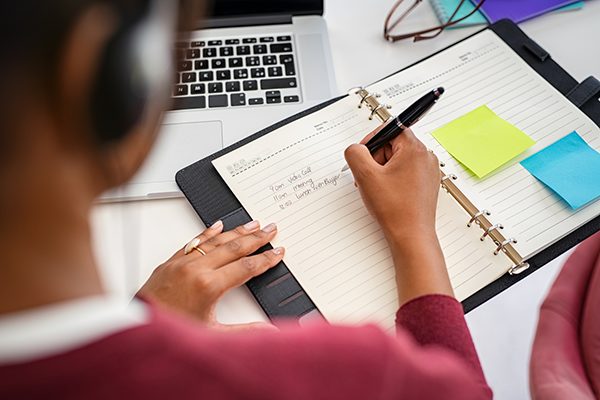
How You Can Help Your Child Improve in School
Get Organized, Do Better
No, this isn’t a pitch for hiring tutors. It’s not a list of recommended study aids. Or books, tapes, videos, or other programs you can buy that will help your child in school. One of the simplest ways you can give your child a boost that will help him or her in school as well as for the rest of their lives is to give them the gift of organization.
That’s it. You can do those other things as well, but they won’t work or be as effective if your child’s desk, backpack, bedroom, home, and life are a disorganized mess. Because chances are that if your child’s environment is chaotic, so is their brain.
Where to Start
Start small. Does your child’s backpack for school have pockets, dividers, pouches, etc. or is it just one big open bag they throw everything into? Get color-coded folders and pouches and other containers that fit inside the backpack to help them keep things sorted. Have one folder that is just for papers they’re supposed to bring home for you to see and/or sign. Have a folder for each subject so they can easily sort their work, whether it’s completed assignments or works in progress. Of course they need other supplies; pens, pencils, erasers, sharpener, highlighter, calculator, compass, ruler, etc. Whatever your student needs to carry from classroom to classroom or from school to home, help them get it organized and work with them to keep it that way.
If your child’s assignments, classroom work, notes from the teacher, etc. are online, then take a few minutes every day to go over those things together.
Most kids can effectively use a daily planner by 4th or 5th grade. And even though today everything is online, electronic, and virtual, teach your child how to write down assignments, due dates, reminders, etc. It’s actually handier than having to look it up, plus the act of writing things down helps sear it into memory.
Being Organized as a Lifestyle
There’s a certain amount of casual clutter or disorganization that just happens in the daily flow of life’s activities, and that’s understandable. But studies have shown that living amongst clutter is stressful, and can cause anxiety and impair the ability to concentrate. Once the backpack or bookbag is sorted, work with your child to get their closet, dresser, desk, bedroom, toys, sports equipment, and other belongings sorted and organized, and teach them how to keep up with it so it’s not a huge chore once a month, but a daily habit that only takes a few minutes. This will help contribute to their inner calm, which in turn helps them focus and concentrate.
Unbusy Their Schedule
Families are on the go. In addition to school for them and work for you, there’s meals, shopping, errands, sports, extracurricular activities, church or worship, social activities, pets to care for, and the list goes on. It’s up to you to take a step back and look at your own family’s dynamics and see if there are ways you can fit in blocks of down time for your child. If there is more than one adult in the family, can one of you do some of the errands while the other stays home, giving the kids a break from being on the go? Will meal prep once a week be a viable timesaver for you that can lessen the daily burden? Will prepared meal delivery services fit into the budget so meals are super easy?
Look for ways to clear some time every day that is unstructured and unscheduled. It will help your child and also help you.
Unplug the Electronics
Kids spend too much time online, plugged in, overstimulated. Apparently the average kid between 8 and 18 spends six to seven hours a day in front of a screen. For their sanity, safety, and success, put limits on screen time. Build a library of actual books, magazines, journals, comic books, travel guides, cookbooks, catalogs, hobby books, etc. And help them get up off the couch and do something active every day. Weather permitting, spending some time outdoors each day is ideal. Walk the dog, water the flowers, pick weeds, ride a bike, skateboard, go for a walk, but just find something to do that gets your child outside and moving.
These are all things that contribute to your child’s overall mental health, which in turn is going to help them get the most out of school. Making these activities part of their daily routine is going to help your child feel focused, confident and proactive. Turning these activities into habits helps set up your child for a lifetime of success.


